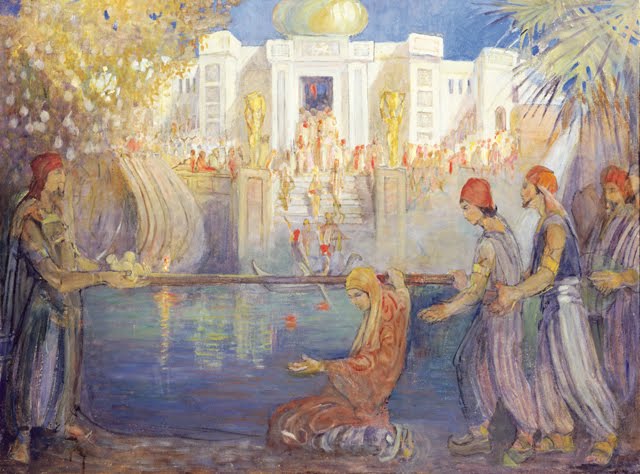Feeling the present-day influences of Korihor?
Last Sunday, I taught the Gospel Doctrine class in my LDS ward as the substitute teacher. Even though I serve in our ward Relief Society presidency, I tend to be a “stand-in.” Last Sunday felt different, however. The Book of Mormon lesson material centered on Alma, Chapters 30-31. The lesson introduction reads: ” . . . identify people and ideas that oppose Jesus Christ,” featuring the antichrist Korihor, and his combative philosophical argument with the prophet Alma the Younger. (See https://www.churchofjesuschrist.org/study/manual/come-follow-me-for-home-and-church-book-of-mormon-2024/29?lang=eng )
Scanning through the rest of the lesson was like reading from my assigned textbook when I taught argumentation: the strategic methods of argumentation, logic, fallacies, refutations—these principles were reflected in Alma 30-31. The exchange between Korihor and Alma (previously between Zeezrom and Alma) exemplify the same sophistries espoused in present-day academia and contemporary Western societies.
I share my lesson presentation slides in the link below. I have also posted some of these slides directly in this post.
https://www.canva.com/design/DAGLRKd5RQY/AgGRVHhlh-LOE-jRhnmVUg/view

In 2019, I retired from my teaching position at a California state university, so I hadn’t taught argumentative principles for five years. But it all came back while preparing my lesson. My academic career had familiarized me in the building, analyzing, and refuting of arguments. Along the way, I had also studied various philosophers and sophistries.
Modern-day Korihors
Elder Gerald N. Lund, who served as a member of the Seventy, explained that Korihor has many modern-day equivalents:
“Today, the world is permeated with philosophies similar to those taught by Korihor. We read them in books, see them championed in the movies and on television, and hear them taught in classrooms and sometimes in the churches of our time . . .”
“ . . . We see clear evidence of Mormon’s inspiration to give us a full account of Korihor and his teachings. Korihor’s teachings are old doctrine, and yet they are ideas as modern as today’s high-speed printing presses and satellite dishes” (“Countering Korihor’s Philosophy,” Ensign, July 1992, 20).



The lone man who refused to salute Adolph Hitler

Additionally, Biblical and Book of Mormon scriptures reference “antichrists” and their nefarious influences to the primitive Christian church. The Bible Dictionary defines an anti-Christ as “anyone or anything that counterfeits the true gospel or plan of salvation and that openly or secretly is set up in opposition to Christ. The great antichrist is Lucifer, but he has many assistants both as spirit beings and as mortals” (“Antichrist”).
To protect ourselves from these deceptive and devious philosophies, we can access the spiritual power of the Holy Ghost to soften hearts and open minds while giving us utterance against those who seek to destroy our faith.
Obviously, we don’t need to be experts in argumentation to powerfully speak and testify. I have watched many brilliant scholars debate each other, and neither changes the other’s mind. I can personally testify that the Spirit gives us utterance (or stops our utterance), and it is by divine influence that hearts and minds are truly changed. In our desire to speak with the Spirit, there are some prerequisites:
- Personal faith
- A humble heart
- A familiarity with the scriptures and modern-day Church leaders—especially the Prophet
- Asking specifically for the Lord to help us speak with the Spirit
- Avoiding a contentious spirit

“Lehi’s Dream” by Minerva Teichert
Below are two of my slides that can serve as a basic, generic template for discerning between sophistry and truth:


Elder Jeffrey R. Holland of the Quorum of the Twelve Apostles explained one way to respond to an anti-Christ:
“Korihor ridiculed the ‘foolish … [and] silly traditions’ of believing in a Christ who should come.
“Korihor’s arguments sound very contemporary to the modern reader, but Alma used a timeless and ultimately undeniable weapon in response—the power of personal testimony. Angry that Korihor and his like were essentially against happiness, [Giddonah, the high priest] asked, ‘Why do you teach this people that there shall be no Christ, to interrupt their rejoicings?’ [Alma 30:22] ‘I know there is a God’” (Christ and the New Covenant: The Messianic Message of the Book of Mormon, [1997], 121).

Of course, the ultimate persuader is Jesus Christ. Still, using the influence of the Holy Ghost, we can be given utterance regardless. Speaking with the Spirit is the most effective way to soften hearts and influence minds.

Isn’t it fascinating how history repeats itself? After thousands of years, humans are still arguing about the same things. Nothing is ever permanently resolved because so many become blinded by personal pride, greed, ambition, power, domination, and many other self-serving reasons.
When feeling confused, we have personal access to God. We can go to Him as the ultimate source in finding truth and sound principles to live by.
Here’s to avoiding deception,
Julie

